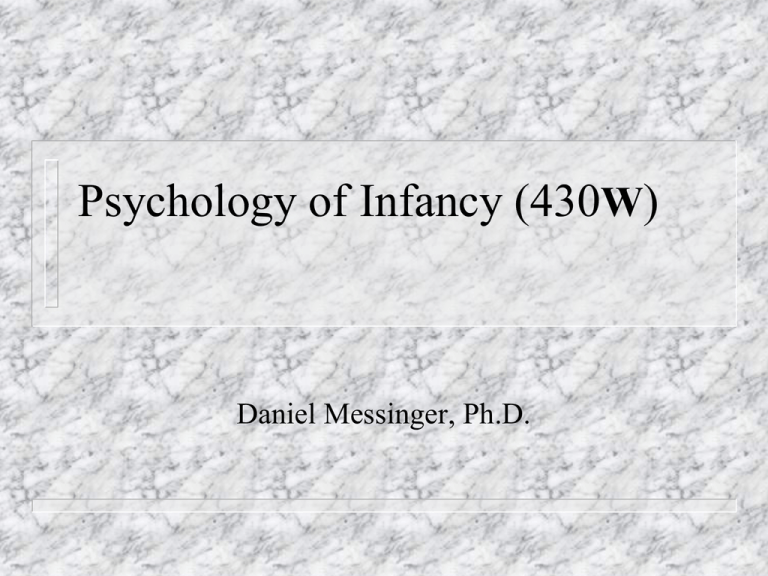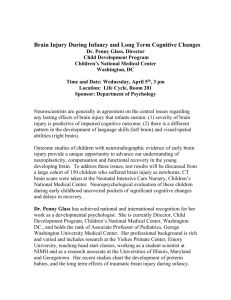Introduction to infancy and to the class.
advertisement

Psychology of Infancy (430W) Daniel Messinger, Ph.D. Today Introducing infancy Introducing the course Introducing ourselves Human infancy From 0 to 2 or 3 years of age Most rapid, profound change in the lifecycle In multiple areas of functioning Produce a new individual Multiple areas of infant development Motor – Communication – no sense of self/other to complex relationships Emotional – crying to talking Social – jerky hand movements to coordinated walking crying to laughing and the beginnings of pride Cognitive – ‘Where’s that breast’ to make-believe United by a process Infant subjectivity – Stern’s ‘emergent self’ Rapidly forming action/sensation patterns Create new competencies and new challenges Infancy in its own terms Nature wants children to be children before they are men. If we deliberately depart from this order, we shall get premature fruits which are neither ripe nor well flavored and which soon decay. We shall have youthful sages and grown up children. Childhood has ways of seeing, thinking, and feeling, peculiar to itself; nothing can be more foolish than to substitute our ways for them. Jean Jacques Rousseau (quoted in Bjorklund) Development—Please describe Natalie Time Lapse: Birth to 10 years old in 1 minute 25 sec. http://www.youtube.com/watch?v=ZTjHLF3xKWo Child growth face morph time-lapse (from birth to almost 4). http://www.youtube.com/watch?v=nm_DiUhqCkc&featur e=related Lex is Three. Removed from youtube – Write down 1-36 http://www.youtube.com/watch?v=8vNxjwt2Aq Y Time lapse of a baby playing with his toys. 9 months http://www.thisiscolossal.com/2013/09/ag ing-timelapse-anthony-cerniello/ a face from infancy to adulthood from family stills – From cross-sectional photos with digital animation Class description Critical questions class-by-class – – Critical questions, final project – – Focus of class sessions Weekly papers Select for in-depth study Final paper Empirical project Honors credit available Research opportunities – Psych 367-368


